#It cloud devops service
Text
Uncover the power of AWS with our carousel of key findings! Dive into essential AWS statistics and unlock insights you didn't know you needed.



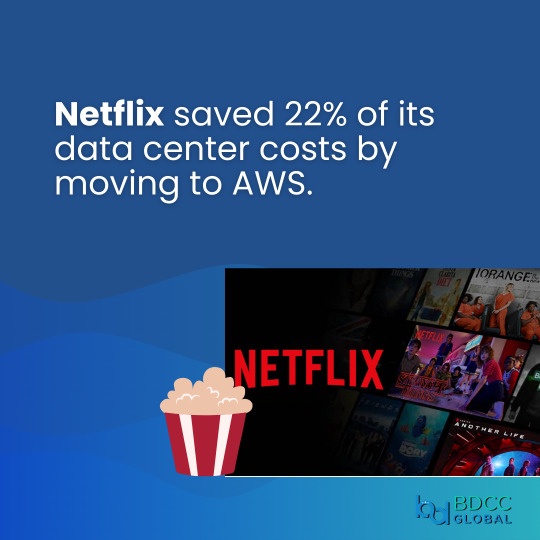
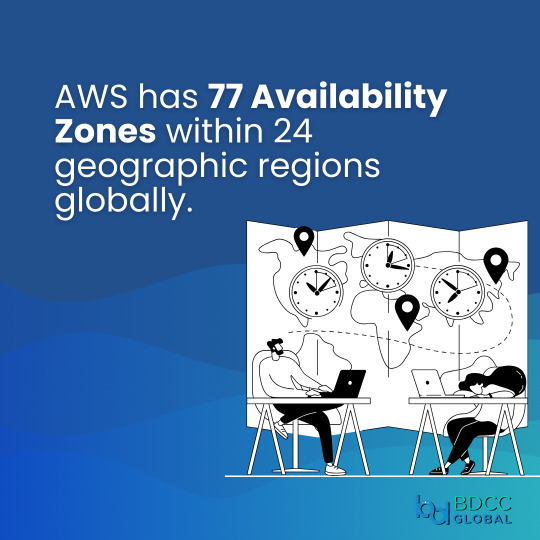
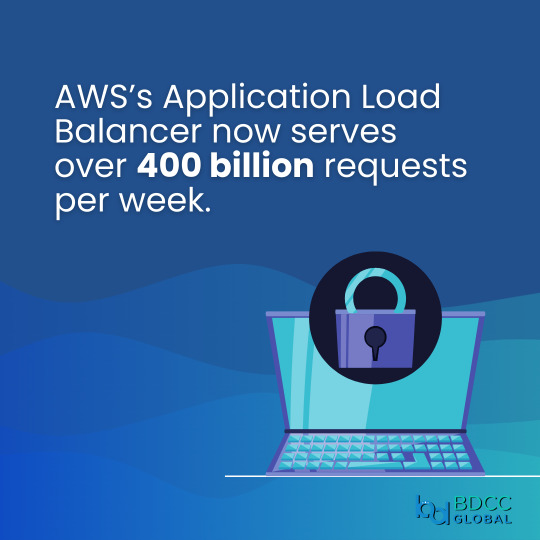
4 notes
·
View notes
Text
Journey to Devops
The concept of “DevOps” has been gaining traction in the IT sector for a couple of years. It involves promoting teamwork and interaction, between software developers and IT operations groups to enhance the speed and reliability of software delivery. This strategy has become widely accepted as companies strive to provide software to meet customer needs and maintain an edge, in the industry. In this article we will explore the elements of becoming a DevOps Engineer.
Step 1: Get familiar with the basics of Software Development and IT Operations:
In order to pursue a career as a DevOps Engineer it is crucial to possess a grasp of software development and IT operations. Familiarity with programming languages like Python, Java, Ruby or PHP is essential. Additionally, having knowledge about operating systems, databases and networking is vital.
Step 2: Learn the principles of DevOps:
It is crucial to comprehend and apply the principles of DevOps. Automation, continuous integration, continuous deployment and continuous monitoring are aspects that need to be understood and implemented. It is vital to learn how these principles function and how to carry them out efficiently.
Step 3: Familiarize yourself with the DevOps toolchain:
Git: Git, a distributed version control system is extensively utilized by DevOps teams, for code repository management. It aids in monitoring code alterations facilitating collaboration, among team members and preserving a record of modifications made to the codebase.
Ansible: Ansible is an open source tool used for managing configurations deploying applications and automating tasks. It simplifies infrastructure management. Saves time when performing tasks.
Docker: Docker, on the other hand is a platform for containerization that allows DevOps engineers to bundle applications and dependencies into containers. This ensures consistency and compatibility across environments from development, to production.
Kubernetes: Kubernetes is an open-source container orchestration platform that helps manage and scale containers. It helps automate the deployment, scaling, and management of applications and micro-services.
Jenkins: Jenkins is an open-source automation server that helps automate the process of building, testing, and deploying software. It helps to automate repetitive tasks and improve the speed and efficiency of the software delivery process.
Nagios: Nagios is an open-source monitoring tool that helps us monitor the health and performance of our IT infrastructure. It also helps us to identify and resolve issues in real-time and ensure the high availability and reliability of IT systems as well.
Terraform: Terraform is an infrastructure as code (IAC) tool that helps manage and provision IT infrastructure. It helps us automate the process of provisioning and configuring IT resources and ensures consistency between development and production environments.
Step 4: Gain practical experience:
The best way to gain practical experience is by working on real projects and bootcamps. You can start by contributing to open-source projects or participating in coding challenges and hackathons. You can also attend workshops and online courses to improve your skills.
Step 5: Get certified:
Getting certified in DevOps can help you stand out from the crowd and showcase your expertise to various people. Some of the most popular certifications are:
Certified Kubernetes Administrator (CKA)
AWS Certified DevOps Engineer
Microsoft Certified: Azure DevOps Engineer Expert
AWS Certified Cloud Practitioner
Step 6: Build a strong professional network:
Networking is one of the most important parts of becoming a DevOps Engineer. You can join online communities, attend conferences, join webinars and connect with other professionals in the field. This will help you stay up-to-date with the latest developments and also help you find job opportunities and success.
Conclusion:
You can start your journey towards a successful career in DevOps. The most important thing is to be passionate about your work and continuously learn and improve your skills. With the right skills, experience, and network, you can achieve great success in this field and earn valuable experience.
2 notes
·
View notes
Text
Azure’s Evolution: What Every IT Pro Should Know About Microsoft’s Cloud
IT professionals need to keep ahead of the curve in the ever changing world of technology today. The cloud has become an integral part of modern IT infrastructure, and one of the leading players in this domain is Microsoft Azure. Azure’s evolution over the years has been nothing short of remarkable, making it essential for IT pros to understand its journey and keep pace with its innovations. In this blog, we’ll take you on a journey through Azure’s transformation, exploring its history, service portfolio, global reach, security measures, and much more. By the end of this article, you’ll have a comprehensive understanding of what every IT pro should know about Microsoft’s cloud platform.
Historical Overview
Azure’s Humble Beginnings
Microsoft Azure was officially launched in February 2010 as “Windows Azure.” It began as a platform-as-a-service (PaaS) offering primarily focused on providing Windows-based cloud services.
The Azure Branding Shift
In 2014, Microsoft rebranded Windows Azure to Microsoft Azure to reflect its broader support for various operating systems, programming languages, and frameworks. This rebranding marked a significant shift in Azure’s identity and capabilities.
Key Milestones
Over the years, Azure has achieved numerous milestones, including the introduction of Azure Virtual Machines, Azure App Service, and the Azure Marketplace. These milestones have expanded its capabilities and made it a go-to choice for businesses of all sizes.
Expanding Service Portfolio
Azure’s service portfolio has grown exponentially since its inception. Today, it offers a vast array of services catering to diverse needs:
Compute Services: Azure provides a range of options, from virtual machines (VMs) to serverless computing with Azure Functions.
Data Services: Azure offers data storage solutions like Azure SQL Database, Cosmos DB, and Azure Data Lake Storage.
AI and Machine Learning: With Azure Machine Learning and Cognitive Services, IT pros can harness the power of AI for their applications.
IoT Solutions: Azure IoT Hub and IoT Central simplify the development and management of IoT solutions.
Azure Regions and Global Reach
Azure boasts an extensive network of data centers spread across the globe. This global presence offers several advantages:
Scalability: IT pros can easily scale their applications by deploying resources in multiple regions.
Redundancy: Azure’s global datacenter presence ensures high availability and data redundancy.
Data Sovereignty: Choosing the right Azure region is crucial for data compliance and sovereignty.
Integration and Hybrid Solutions
Azure’s integration capabilities are a boon for businesses with hybrid cloud needs. Azure Arc, for instance, allows you to manage on-premises, multi-cloud, and edge environments through a unified interface. Azure’s compatibility with other cloud providers simplifies multi-cloud management.
Security and Compliance
Azure has made significant strides in security and compliance. It offers features like Azure Security Center, Azure Active Directory, and extensive compliance certifications. IT pros can leverage these tools to meet stringent security and regulatory requirements.
Azure Marketplace and Third-Party Offerings
Azure Marketplace is a treasure trove of third-party solutions that complement Azure services. IT pros can explore a wide range of offerings, from monitoring tools to cybersecurity solutions, to enhance their Azure deployments.
Azure DevOps and Automation
Automation is key to efficiently managing Azure resources. Azure DevOps services and tools facilitate continuous integration and continuous delivery (CI/CD), ensuring faster and more reliable application deployments.
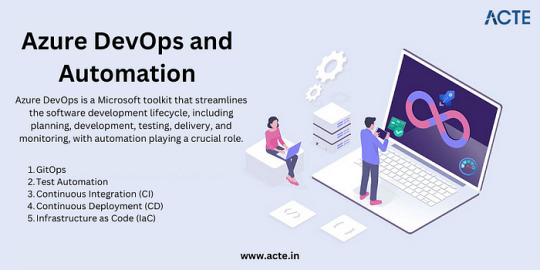
Monitoring and Management
Azure offers robust monitoring and management tools to help IT pros optimize resource usage, troubleshoot issues, and gain insights into their Azure deployments. Best practices for resource management can help reduce costs and improve performance.
Future Trends and Innovations
As the technology landscape continues to evolve, Azure remains at the forefront of innovation. Keep an eye on trends like edge computing and quantum computing, as Azure is likely to play a significant role in these domains.
Training and Certification
To excel in your IT career, consider pursuing Azure certifications. ACTE Institute offers a range of certifications, such as the Microsoft Azure course to validate your expertise in Azure technologies.

In conclusion, Azure’s evolution is a testament to Microsoft’s commitment to cloud innovation. As an IT professional, understanding Azure’s history, service offerings, global reach, security measures, and future trends is paramount. Azure’s versatility and comprehensive toolset make it a top choice for organizations worldwide. By staying informed and adapting to Azure’s evolving landscape, IT pros can remain at the forefront of cloud technology, delivering value to their organizations and clients in an ever-changing digital world. Embrace Azure’s evolution, and empower yourself for a successful future in the cloud.
#microsoft azure#tech#education#cloud services#azure devops#information technology#automation#innovation
2 notes
·
View notes
Text

2 notes
·
View notes
Text
Appzotech Top Software Leading Company in USA
Welcome to AppzoTech a leading cloud service provider company in the USA In today's rapidly evolving digital landscape, it is essential for businesses to have a reliable and secure cloud infrastructure to support their operations. At AppzoTech, we understand the importance of cloud services and have developed our platform to offer the best possible solution to our clients.
Our cloud services are designed to meet the diverse needs of businesses of all sizes. Whether you are a small business or a large enterprise, we have the expertise and technology to help you grow and scale. Our services include Infrastructure as a Service (IaaS), Platform as a Service (PaaS), Software as a Service (SaaS), and much more.
At AppzoTech, is a devops consulting services in usa. We understand that security is paramount when it comes to cloud services. That is why we have implemented the highest level of security features to protect our clients' data. We use cutting-edge encryption technology to secure our clients' data and ensure that it is protected at all time.
AppzoTech, your go-to destination for top-notch Android and iOS app development services. Our team of skil led developers is committed to building innovative and user-friendly apps that will help businesses achieve their goals and reach new heights of success.
In today's digital age, having a mobile app for your business is more important than ever. With millions of people using smartphones and tablets, having a well-designed app can help you reach your target audience and stand out from the competition. we specialize in developing custom Android and iOS apps that are tailored to meet the specific needs of our clients.
your premier destination for top-quality UI/UX design and development services in the USA. We understand that in today's digital age, having an exceptional user interface (UI) and user experience (UX) is crucial for the success of any digital product we specialize in providing custom UI/UX design and development services that will help your business stand out in a crowded market.
Our team of skilled designers and developers has years of experience in creating intuitive and user-friendly interfaces for a wide range of digital products, including mobile apps, websites, and software applications. We work closely with our clients to understand their brand, target audience, and goals, to create a custom UI/UX design that is tailored to meet their specific needs.
#cloud service provider company in the USA#devops consulting services in usa.#Android and iOS app development services
4 notes
·
View notes
Text
Most in-demand Azure cloud skills that IT professionals should have
In today’s competitive job market, having the right skillset is key to success. Azure cloud skills are becoming increasingly important for IT professionals and developers. With the help of Azure cloud services, organizations can build secure and reliable applications that can scale up or down as needed. Azure cloud skills can be used to develop applications that run on the cloud, manage data, automate processes and deploy solutions quickly and efficiently. It also allows developers to create hybrid solutions by combining on-premise resources with public cloud offerings. Having the right Azure cloud skills can open up new opportunities for IT professionals in terms of career growth and salary potential. It is essential for IT professionals to stay up-to-date with the latest developments in this field in order to remain competitive in this ever-evolving job market. The following are some of the most in-demand Azure cloud skills that IT professionals should have:
1. Azure cloud services: This includes developing applications that run on Microsoft Azure and managing data, automating processes and deploying solutions quickly and efficiently.
2. Azure IaaS: Determines how an organization can build secure, reliable applications by using public cloud resources in combination with on-premise resources to create hybrid solutions for maximum efficiency.
3. Windows Server: In order to develop solutions for either public or private clouds, developers need familiarity with this server operating system which includes Microsoft Azure hybrid solutions.
4. Windows: Determines how an organization can harness the power of the cloud by leveraging the powerful development toolset for this platform and its wide range of applications.
#Azure#Cloud#Cloud computing#Microsoft Azure#Azure Active Directory#Azure Virtual Machines#Azure Storage#Azure Networking#Azure DevOps#Azure Kubernetes Service#Azure SQL#Azure Machine Learning#Azure Automation#Azure Security#Azure IoT#Azure Functions#Azure Logic Apps#Azure App Service#Azure ExpressRoute#Azure Monitor#Azure Cost Management#Azure Backup#Azure Site Recovery#Azure AD B2C#Azure AD B2B
2 notes
·
View notes
Text

Unlock the full potential of your cloud infrastructure with Impressico Business Solutions. As a Microsoft DevOps Competency provider, they offer expert cloud computing services, from seamless deployment to efficient management. Elevate your business performance with tailored DevOps solutions designed for agility and scalability. Contact them for customized solutions today!
#Cloud Computing Service Offerings#Cloud Computing Service Providers#Cloud Computing Services#Microsoft DevOps Competency#DevOps Competency Microsoft
0 notes
Text
Cloud-native Anwendungen: Effiziente Entwicklung und Deployment
In der heutigen dynamischen IT-Landschaft gewinnen Cloud-native Anwendungen zunehmend an Bedeutung. Sie ermöglichen Unternehmen, schnell auf sich ändernde Marktbedingungen zu reagieren und innovative Lösungen zu entwickeln. In diesem Artikel werden wir die Grundlagen und Architekturprinzipien von Cloud-native Anwendungen sowie die Optimierung von Entwicklung und Deployment in der Cloud…
#Automatisierung#Cloud-Native#Containerisierung#DevOps#Innovation#Managed Services#Softwareentwicklung
0 notes
Text

DataEdge provides IT consulting and staffing services to a wide range of industries across the US, from application development and maintenance support to ERP and CRM services, data analytics, cloud computing, DevOps services, software testing and QA, database management, staffing, and IT recruitment.
#application development services in usa#salesforce services in usa#software testing services#cloud services in usa#crm consulting services#devops services in usa#staffing and recruiting#database management services
0 notes
Text
#AWS Cloud Services#Best Service cloud consulting providers#Microsoft Azure cloud consulting services#Cloud Consulting Services India#Amazon Cloud Consulting Services#Cloud Software Consulting Services#Devops consulting and managed cloud services#AWS cloud consulting services#Cloud Managed Services#Cloud Strategy & Consulting Service#Cloud Services#Cloud Consulting Services in India#Cloud Consulting Services#Cloud Consulting Services & Solutions#Mobile App Development Company near me#Mobile App Development Company#software development company in india#Cloud Consulting Services in Noida#app development in noida#software development company in noida#custom software development company in noida#ios app development company in noida#Website Designing#website designing company in delhi ncr#Web Designing Company in Noida#Web Designing Company in India#Best Website Design Company in Noida#Website Designing & Web Development Company in Noida#Website Designing in Noida#Web Designing Company
0 notes
Text
Cloud Computing and DevOps: The Backbone of Digital Transformation in India

In today’s fast-paced digital world, businesses are constantly seeking innovative ways to stay competitive. Cloud computing has emerged as a pivotal technology, enabling companies to enhance efficiency, scalability and security. In India, the rise of cloud computing companies in India has been nothing short of remarkable, as organisations increasingly migrate to the cloud to streamline their operations. Paired with DevOps, this technology duo is driving digital transformation across industries and companies like BuzzyBrains are leading the charge.
The Cloud Computing Revolution in India
The adoption of cloud technology has seen a massive surge in India. Organisations of all sizes are moving their infrastructure to the cloud to harness its benefits of scalability, cost-efficiency and data security. Cloud computing companies in India are providing diverse services, including Infrastructure as a Service (IaaS), Platform as a Service (PaaS) and Software as a Service (SaaS), catering to different business needs.
This growing demand for cloud services has made India one of the most important markets for cloud service providers, with companies offering robust solutions for industries like healthcare, finance and retail. Among them, BuzzyBrains stands out, offering cutting-edge cloud computing services tailored to specific business needs.
AWS Development and its Significance
When discussing cloud computing, one cannot ignore Amazon Web Services (AWS). AWS is the leader in cloud services and businesses around the world rely on it for their cloud infrastructure. In India, the demand for AWS development India is growing rapidly as organisations look for experts to help them design, develop and manage their AWS environments.
AWS allows businesses to scale resources based on demand, ensuring optimal performance and cost savings. Whether it’s developing cloud-native applications or migrating existing systems to the AWS cloud, companies like BuzzyBrains have established themselves as proficient partners in AWS development. Their team of AWS-certified experts ensures businesses make the most of this powerful platform.
DevOps: The Game-Changer for Cloud Adoption
DevOps is another critical aspect of cloud technology, helping organisations accelerate their software development processes. DevOps companies in India are transforming the way software is built, tested and deployed. By integrating development and operations teams, DevOps enables continuous integration and continuous delivery (CI/CD), leading to faster release cycles and more reliable software.
The rise of DevOps companies in India has been instrumental in helping businesses adopt cloud technologies seamlessly. With a robust DevOps strategy, organisations can automate their infrastructure, reduce downtime and achieve greater agility. BuzzyBrains excels in this area, offering comprehensive DevOps solutions that enable companies to optimise their cloud infrastructure and ensure smooth deployments.
Conclusion
As India continues to emerge as a hub for cloud and DevOps solutions, businesses are turning to industry leaders like BuzzyBrains to navigate their digital transformation journey. By leveraging cloud computing and AWS development, along with a strong DevOps framework, companies can not only streamline their operations but also position themselves for future growth. Whether you are a startup or an established enterprise, partnering with the right cloud and DevOps provider will be key to staying ahead in today’s competitive market.
#aws development india#cloud computing services in india#devops companies in india#buzzybrains software#Cloud computing companies in India
0 notes
Text
Debating between Pulumi and Terraform for Infrastructure as Code? Dive into our latest article to uncover the strengths of each and discover which tool suits your needs best. Don't miss out on this essential read:
2 notes
·
View notes
Text
Unlocking the Future of IT with Platform Engineering Strategies

As businesses push toward digital transformation, platform engineering has emerged as a key driver of efficiency, agility, and scalability. A well-implemented platform engineering strategy can streamline software development, enhance collaboration, and reduce operational complexities. In this blog, we'll explore the latest platform engineering strategies that can help organizations stay competitive and innovate faster.
What is Platform Engineering?
At its core, platform engineering is the process of designing and building technology platforms that empower development teams to deliver software faster and more efficiently. This discipline involves creating a shared infrastructure and set of tools, allowing engineering teams to focus on writing code rather than managing environments.
1. Adopt Infrastructure as Code (IaC)
One of the most crucial platform engineering strategies is adopting Infrastructure as Code (IaC). By automating infrastructure provisioning, IaC reduces the risk of human error and ensures that development environments remain consistent. Tools like Terraform and AWS CloudFormation have become industry standards, enabling teams to version control their infrastructure just like they do with application code.
2. Implement a Self-Service Platform
Another key strategy in platform engineering is building a self-service platform for development teams. These platforms can automate repetitive tasks, such as environment provisioning, application deployment, and monitoring setup. A self-service approach empowers developers to quickly access resources without relying on centralized IT teams, speeding up the software delivery process.
3. Embrace Observability
With increasing system complexity, observability is becoming an essential part of any platform engineering strategy. Implementing comprehensive monitoring and logging tools like Prometheus, Grafana, and ELK Stack ensures that teams can detect, troubleshoot, and fix issues before they escalate. This approach reduces downtime and also enhances system reliability.
4. Microservices and Containerization
Microservices and containerization, facilitated by technologies like Kubernetes and Docker, have become foundational in modern platform engineering strategies. These technologies allow organizations to build scalable, modular applications that can be updated independently. Container orchestration platforms enable automated scaling, health checks, and rolling updates, ensuring continuous delivery and minimizing disruptions.
5. Security by Design
Security should be embedded into every layer of your platform engineering process. From automated security checks in CI/CD pipelines to integrating tools like Vault for secrets management, security by design ensures that your infrastructure and applications remain secure throughout their lifecycle. A robust platform engineering strategy includes continuous vulnerability scanning, threat detection, and incident response.
6. Collaboration Between Dev and Ops
Successful platform engineering strategies hinge on strong collaboration between development and operations teams. This is where DevOps practices play a pivotal role. By adopting a DevOps culture, teams can align their goals, improve communication, and work together to streamline software delivery. Platform engineering acts as the enabler of DevOps, providing the infrastructure and tools required for automation and seamless operations.
7. Continuous Integration and Continuous Delivery (CI/CD)
Automation is the backbone of any modern platform engineering strategy. Implementing CI/CD pipelines allows for continuous testing, integration, and delivery of code. Platforms like Jenkins, GitLab, and CircleCI enable development teams to release features faster while maintaining high-quality standards.
8. Scalability and Performance Optimization
A vital component of platform engineering is ensuring that the infrastructure scales with the growing demands of the business. Utilizing autoscaling techniques and performance optimization tools like AWS Auto Scaling, load balancers, and CDN integration can ensure high availability even during peak loads. This proactive approach guarantees optimal performance and prevents bottlenecks.
Conclusion
Platform engineering is not just a buzzword—it's a transformative approach that empowers organizations to innovate faster, reduce operational complexity, and scale efficiently. By embracing strategies like IaC, microservices, observability, and DevOps, businesses can create a solid foundation for digital transformation. With the right platform engineering strategies, organizations are better equipped to stay ahead of the competition and build robust, scalable, and secure systems.
#cloud platform engineering#continous delivery#continous integration#devops engineering services#devops
0 notes
Text
0 notes
Text
Discover the power of Azure DevOps tools like, Jenkins, and Docker in their latest podcast. Learn how these tools streamline development and operations. Plus, find out how Impressico Business Solutions can enhance your Cloud DevOps with expert services tailored to your needs.
0 notes
Text
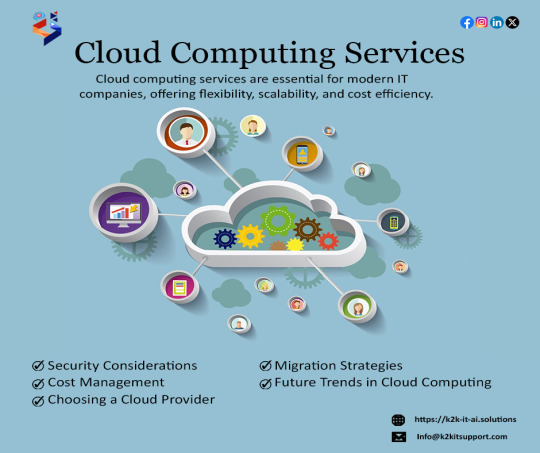
Cloud computing provides flexible and affordable IT solutions that let businesses reach on-demand resources over the Internet such as storage, servers, and software. This removes the requirement of purchasing hardware and setting up infrastructure beforehand so that companies can concentrate on expansion, and creativity instead.
.
.
#cloud #computing #cloudcomputing #security #migration #management #cloudspace #futureofcloud #strategies #k2k #k2kit #flexibility #scalability
#artificial intelligence#branding#ecommerce#machine learning#marketing#plantbased#vegetarian#cloud computing#cybersecurity#it services#information technology#devops#software
0 notes